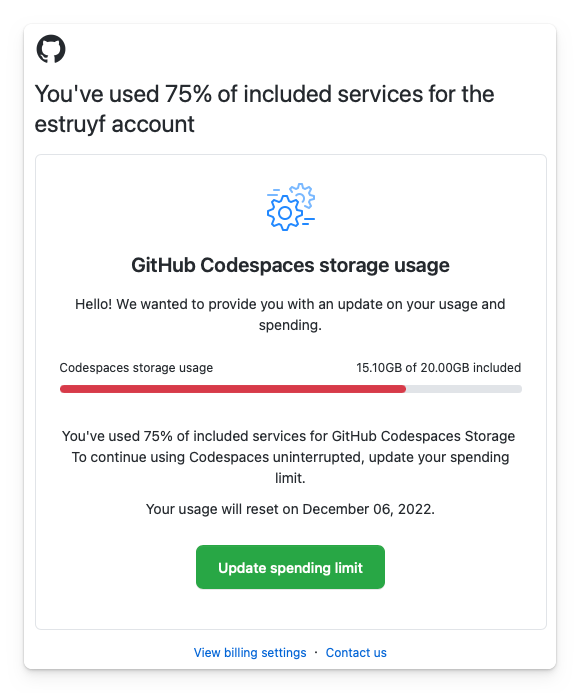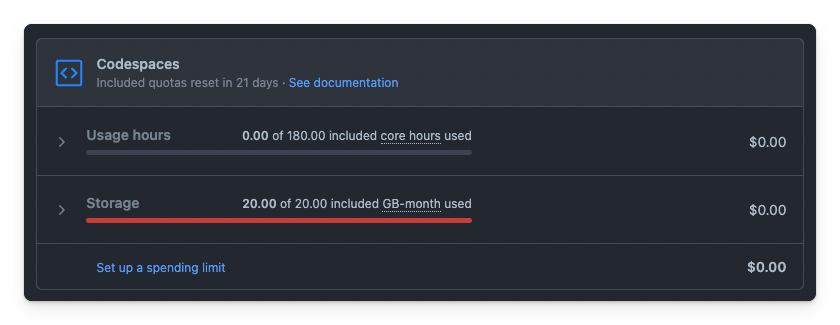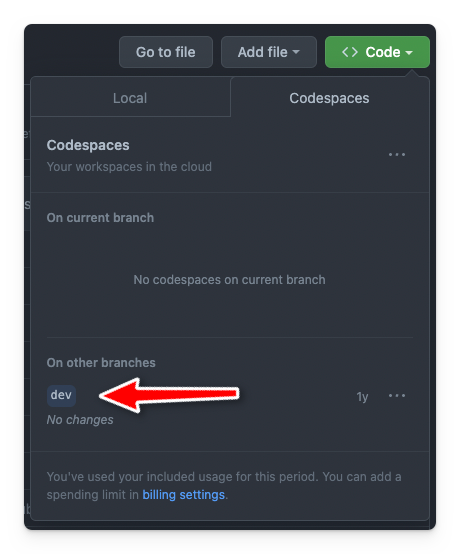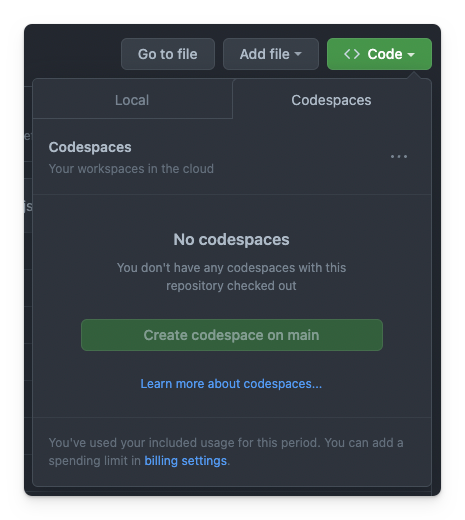Finding your old GitHub Codespaces and deleting them
This post is over a year old, some of this information may be out of date.
Over the weekend, I received a couple of emails I was running out of GitHub Codespaces storage. My limit is 20GB, but more interesting is that I rarely use codespaces.

The last time I used Codespaces was about a year ago, but I couldn’t remember which repository it was. I tried to check a couple of repositories but without success.
When reaching out to GitHub and following the documentation, I found out how to best find all of your old Codespace instances.
{{< blockquote type="info" text="Viewing your GitHub Codespaces usage
Finding your old Codespaces
To find your old Codespaces, you must first go to your Billing and plans page, which you find under your settings.

You will see a Codespaces status, but this does not return the instances. For that, you have to generate a usage report.
You can create a usage report by clicking on the Get usage report button and selecting the date range of your preference. I went for the last seven days.
In the report, you will see the old Codespace instances.

Deleting your old Codespaces
Now the only thing to do is delete these instances. With the report, you get the repository slug. Use the slug to your GitHub repo, where you can find the Codespace.

Delete the Codespace, and you are done.

Related articles
#DevHack: using the VSCode's URI Handler in codespaces
In this article, Elio explains the correct way to use Visual Studio Code's URI handler to ensure that it also works on GitHub Codespaces and Gitpod.
How to set the timezone for your GitHub Codespaces
Learn how to set the timezone for your GitHub Codespaces and avoid issues with dates.
Sample Node.js SharePoint webhook application released
Report issues or make changes on GitHub
Found a typo or issue in this article? Visit the GitHub repository to make changes or submit a bug report.
Comments
Let's build together
Manage content in VS Code
Present from VS Code
